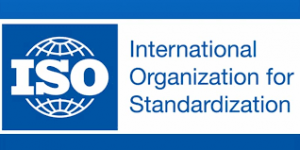FCPAméricas Blog
ISO 37.001 (Anti-Bribery Management System) Expected to be Published by the end of 2016
6.10.2016
 Carlos Ayres serves as Brazil’s Head of Delegation for ISO 37.001.
Carlos Ayres serves as Brazil’s Head of Delegation for ISO 37.001.
Over 60 experts from 33 countries (from Latin America, there were delegations from Argentina, Brazil, Ecuador, Guatemala, and Mexico) participated last week in Mexico City in the final round of discussions related to the draft of ISO 37.001 (Anti-Bribery Management System). Participants considered and discussed over 540 comments to the draft. The final version is expected to be approved in the coming weeks. ISO 37.001 is expected to be published by the end of 2016. Below is some key information about the upcoming ISO 37.001.
An ISO Standard. The International Organization for Standardization (ISO) develops and publishes international standards. It is compromised of the national standards bodies from 163 member countries. Over the last 3 years, more than 80 experts, 16 observer countries and 7 liaison organizations have been involved in the drafting of ISO 37.001.
Scope and Requirements. ISO 37.001 specifies requirements and provides guidance for establishing, implementing, maintaining, reviewing and improving an anti-bribery management system, which can be standalone or integrated into an overall management system. ISO 37.001 requires a series of measures and controls to help prevent, detect and respond to bribery, such as: an anti-bribery policy, procedures, and controls; top management leadership, commitment and responsibility; senior level oversight; anti-bribery training; risk assessments; due diligence on projects and business associates; reporting, monitoring, investigation and review; and, corrective action and continual improvement. If a requirement is prohibited by applicable law, an organization will not be required to comply with that requirement, but should comply with the remainder of the standard. ISO 37.001 also contains an illustrative annex, which provides guidance on the use of the standard.
Users of ISO 37.001. ISO 37.001 is flexible and can be adapted to a wide range of organizations, including: large organizations; small and medium sized enterprises (SMEs); public and private sector organizations; and non-governmental organizations (NGOs). The standard can be used by organizations in any country.
Potential Benefits. ISO 37.001 provides guidance on the implementation of an anti-bribery management system, helping organizations implement measures designed to prevent, detect and respond to bribery. While conformity with the standard cannot provide assurance that no bribery has occurred or will occur in an organization, it can indicate that the organization is taking important steps to prevent bribery. Given the importance of compliance and the risks imposed by third parties (in many jurisdiction, companies can be held liable for illegal acts committed by their third parties), some expect that certain companies may require certain categories of third parties to be certified within a certain period of time as a condition to continuing to do business with the company. In this context, an ISO 37.001 certification may also be a competitive advantage for a company (different reasons to have a compliance program are discussed here). Some have indicated that authorities from certain jurisdictions may also include compliance with ISO 37.001 as part of the government procurement rules or as a condition for companies entering into settlement agreements related to bribery cases.
Certification. ISO 37.001 is being developed as a requirements standard, making it capable of independent certification. Third parties will be able to certify an organization’s compliance with the standard and there is an ongoing discussion at ISO to develop the competence requirements for bodies involved in the certification process of ISO 37.001.
Additional information about ISO 37.001 can be found here. I will be writing more about it in future posts.
The opinions expressed in this post are those of the author in his or her individual capacity, and do not necessarily represent the views of anyone else, including the entities with which the author is affiliated, the author`s employers, other contributors, FCPAméricas, or its advertisers. The information in the FCPAméricas blog is intended for public discussion and educational purposes only. It is not intended to provide legal advice to its readers and does not create an attorney-client relationship. It does not seek to describe or convey the quality of legal services. FCPAméricas encourages readers to seek qualified legal counsel regarding anti-corruption laws or any other legal issue. FCPAméricas gives permission to link, post, distribute, or reference this article for any lawful purpose, provided attribution is made to the author and to FCPAméricas LLC.
© 2015 FCPAméricas, LLC
Post authored by Carlos Henrique da Silva Ayres, FCPAméricas Contributor



 Comments
Comments